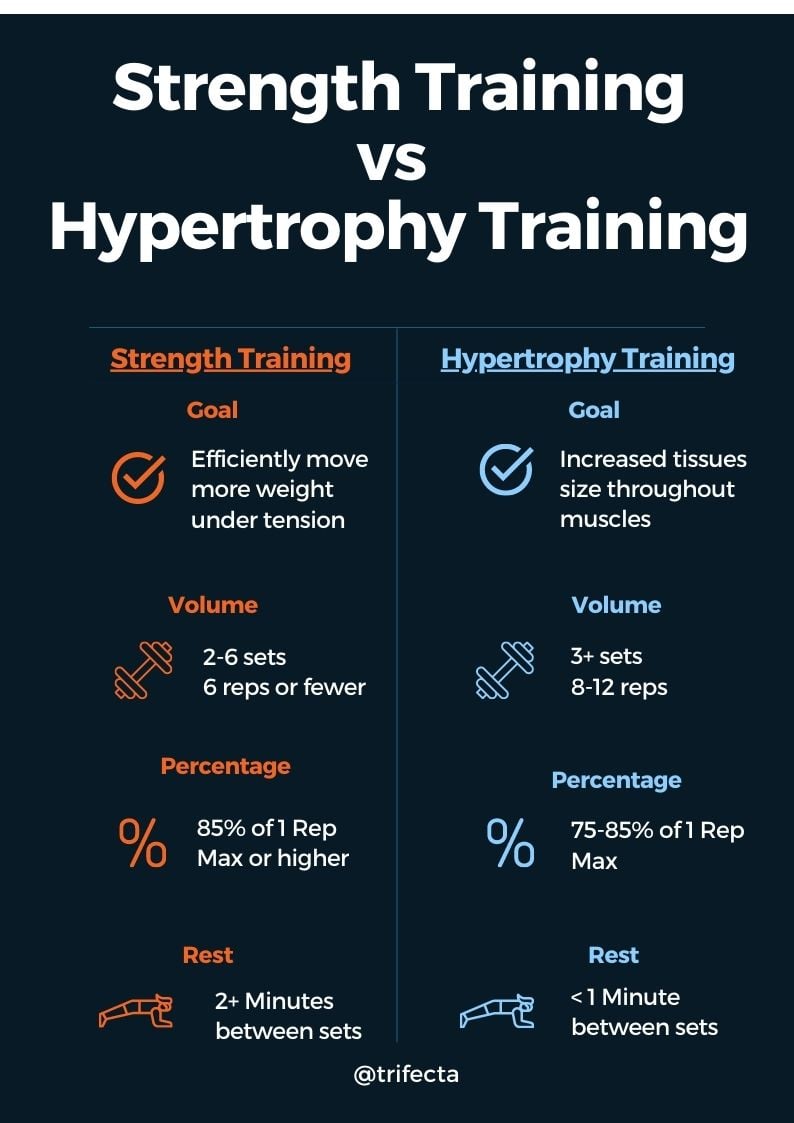Strength Training Versus Muscle Training Nutrients Solutionsв

Strength Training Versus Muscle Training Nutrients Solutionsо Training for strength and training for muscle growth are not the same thing. this article outlines the main differences and what is needed for each approach. this information is useful for beginners and experienced fitness enthusiasts. there is a lot of confusion when it comes to training for strength and muscle growth. #9: bodybuilding vs. strength training: the exercises. strength training generally centers on compound exercises that involve several muscle groups, so called multi joint exercises. doing so allows you to use heavier weights, develop functional strength, and train your central nervous system to coordinate your body to perform more complicated.

Nutrients Solutionsв Powerful Nutrients Formulated To Target Specific Here is a quick example: a strength training workout may include one to five reps (back squats) with compound movements. the workout will result in dense muscle growth. a bodybuilding workout may include eight to twelve reps (bench press) with isolation movements. the workout will result in bigger muscle growth. The optimal training volume for strength is something in the range of 4–8 sets per muscle group per week. a high volume of sets doesn’t impact short term neural adaptations for strength in the. Krings et al. studied the effect of 15 g h, 30 g h and 60 g h of carbohydrates vs. placebo on strength training, running and jumping performance. supplementing with carbohydrates significantly improved performance compared to placebo only in the bench press at all doses and for the 27 m sprint only at the 60 g h dosage, without any dose. On the other hand, strength training aims to increase the functional ability of the muscles. hypertrophy training requires a higher training volume with more frequent workouts and shorter rest periods in between sets. the workouts include more sets and reps with a lower weight. strength training has a lower training volume (fewer days, longer.

Hypertrophy Training For Muscle Growth What It Is And How To Do It Right Krings et al. studied the effect of 15 g h, 30 g h and 60 g h of carbohydrates vs. placebo on strength training, running and jumping performance. supplementing with carbohydrates significantly improved performance compared to placebo only in the bench press at all doses and for the 27 m sprint only at the 60 g h dosage, without any dose. On the other hand, strength training aims to increase the functional ability of the muscles. hypertrophy training requires a higher training volume with more frequent workouts and shorter rest periods in between sets. the workouts include more sets and reps with a lower weight. strength training has a lower training volume (fewer days, longer. Consuming a 250 to 500 calorie surplus is ideal for muscle growth, and a calorie deficit of about 500 per day is the sweet spot for losing fat. eat at least 1.2 grams of protein per kilogram (0.5 to 0.8 grams per pound) of body weight per day. complex carbs and healthy fats help you perform your best and stay healthy. Strength training is known to stimulate bone growth and increase bone density. this can help reduce the risk of osteoporosis and improve overall bone health. strength training puts stress on the bones, which signals the body to strengthen them, resulting in stronger and denser bones over time. 3. enhanced metabolism.

Rdellatraining Differences Between Muscle Building And True Consuming a 250 to 500 calorie surplus is ideal for muscle growth, and a calorie deficit of about 500 per day is the sweet spot for losing fat. eat at least 1.2 grams of protein per kilogram (0.5 to 0.8 grams per pound) of body weight per day. complex carbs and healthy fats help you perform your best and stay healthy. Strength training is known to stimulate bone growth and increase bone density. this can help reduce the risk of osteoporosis and improve overall bone health. strength training puts stress on the bones, which signals the body to strengthen them, resulting in stronger and denser bones over time. 3. enhanced metabolism.

The Difference Between Muscular Strength And Muscular Endurance

Comments are closed.